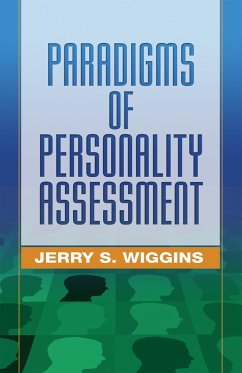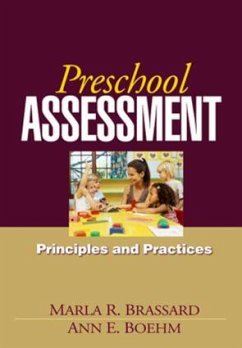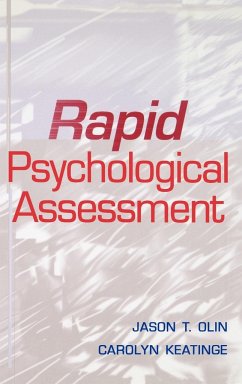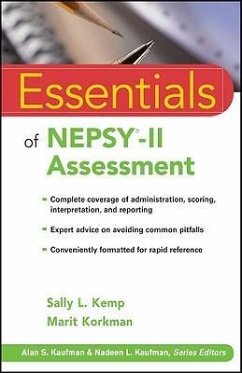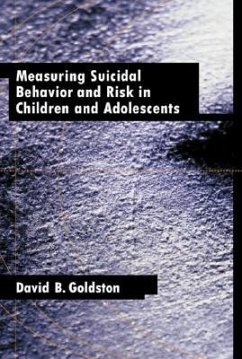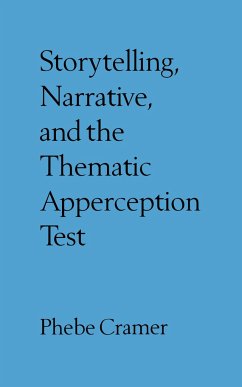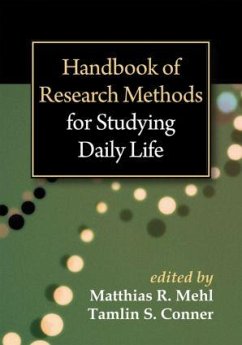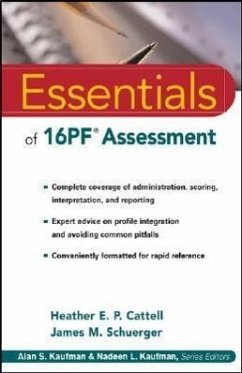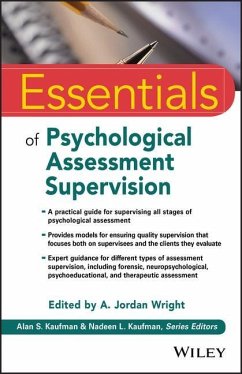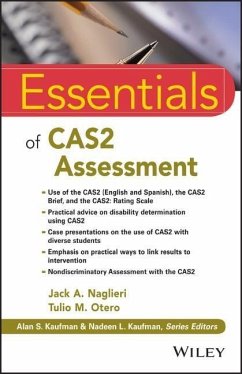
Handbook of Psychological and Educational Assessment of Children
Personality, Behavior, and Context
Herausgeber: Reynolds, Cecil R; Kamphaus, Randy W
Versandkostenfrei!
Versandfertig in über 4 Wochen
93,99 €
inkl. MwSt.

PAYBACK Punkte
47 °P sammeln!
This copy covers both volumes Now in an extensively revised and updated second edition, these essential volumes cover all aspects of child and adolescent assessment. Leading clinical scientists summarize the state of the science of assessment paradigms, instruments, and methods. With an emphasis on practical clinical considerations, chapters also delve into issues related to test development, psychometrics, and bias. Conveniently designed for reference or text use, this vast knowledge base has been synthesized into two volumes which may be purchased separately or together. INTELLIGENCE, APTITU...
This copy covers both volumes Now in an extensively revised and updated second edition, these essential volumes cover all aspects of child and adolescent assessment. Leading clinical scientists summarize the state of the science of assessment paradigms, instruments, and methods. With an emphasis on practical clinical considerations, chapters also delve into issues related to test development, psychometrics, and bias. Conveniently designed for reference or text use, this vast knowledge base has been synthesized into two volumes which may be purchased separately or together. INTELLIGENCE, APTITUDE, AND ACHIEVEMENT surveys assessment of intelligence, learning styles, and academic achievement; covers historical issues and psychometric methods; and addresses diversity issues, ethical concerns, and special topics in mental testing. PERSONALITY, BEHAVIOR, AND CONTEXT reviews the use of projective methods, interviewing and observation, and objective methods of assessing personality and behavior; discusses the assessment of specific syndromes and symptoms; and presents tools for assessing adaptive skills and the family context. New in the Second Edition Both volumes in the second edition have been substantially rewritten to include over a decade's worth of conceptual and empirical advances; numerous new and emerging applications; and the latest professional standards. Highlights of INTELLIGENCE, APTITUDE, AND ACHIEVEMENT include new chapters on applications of the KAIT and DAS, the value of multifactored and cross-battery ability assessments, assessment of memory and of writing skills, preschool intellectual assessment, and assessment of children with language impairments or traumaticbrain injury. PERSONALITY, BEHAVIOR, AND CONTEXT features new chapters on classroom observations, structured diagnostic interviewing, ADHD assessment, uses of the BASC and the ASEBA, assessment of childhood anxiety, and more.




